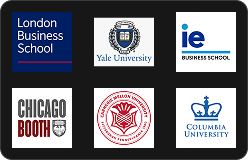
Top MEM Schools in UK: Your Guide to the Best Programs for 2025
What Is MEM and Why It's Growing in the UKIf you're an engineer looking to step into leadership, but still want to stay…
Table of Contents

Category | Details |
| Program Name | MSc Finance |
| School | Warwick Business School (WBS), University of Warwick |
| Duration | 12 months (Full-time) |
| Location | Coventry, United Kingdom |
| Program Structure | Core modules + Electives + Dissertation or Applied Financial Management project |
| STEM Designated | No |
| Tuition Fee (2024/25) | £47,480 for international students |
| Class Size | ~120–150 students |
| Entry Requirements | First Class Honours (UK) or international equivalent in finance, economics, or quantitative discipline |
| GMAT/GRE Requirement | Recommended, not mandatory |
| English Requirements | IELTS 7.0 overall or TOEFL iBT 100 |
| Job Placement Rate | High — within 3 months of graduation |
| Average Starting Salary | ~£45,000–£55,000 (varies by sector/location) |
| Top Employers | J.P. Morgan, Goldman Sachs, EY, HSBC, PwC, UBS |
| Scholarships | Merit-based scholarships up to 50% of tuition |
The Warwick MSc Finance is one of the most respected masters in finance UK programs, offered by Warwick Business School (WBS) — a globally recognized institution regularly ranked among Europe’s top business schools.
This full-time, one-year MFin course is designed for ambitious students aiming for top careers in financial services, investment banking, asset management, or corporate finance. It balances academic depth with real-world application, giving students both theoretical knowledge and practical skills.
The curriculum includes key areas like financial markets, corporate finance, econometrics, asset pricing, and derivatives. Students can also take on an applied project to solve real finance challenges — helping them prepare for fast-paced roles in the global finance industry.
Here’s why the Warwick MSc Finance continues to attract top-tier candidates from around the world:
Whether your goal is to work in London’s finance sector or at a global financial hub abroad, Warwick provides the training and connections to get you there.
WBS is Triple Crown Accredited (AMBA, AACSB, EQUIS) and part of the University of Warwick, a member of the prestigious Russell Group.
Its strong corporate ties include long-standing relationships with firms like:
The school’s location, while outside of London, offers a cost-effective study environment with easy access to London and major finance hubs. Regular networking events, career fairs, and guest speaker series connect students directly with employers.

The Warwick MSc Finance is known for its international diversity and collaborative environment. Students come from a variety of backgrounds, bringing different academic and professional experiences.
Feature | Details |
| Class Size | ~120–150 students |
| International Students | Over 90% |
| Top Regions Represented | China, India, UK, EU, Middle East |
| Gender Ratio | Approx. 45% Female, 55% Male |
Although not mandatory, applicants are encouraged to submit GMAT/GRE scores if they come from a less-quantitative background or wish to strengthen their application.
Metric | Range/Requirement |
| GMAT (recommended) | 650+ for competitive edge |
| GPA (UK Equivalent) | First Class Honours or 70%+ (or international equivalent) |
| Work Experience | Not required; most students are recent graduates, some with internships or up to 1 year of experience |
The program offers a global classroom experience, which translates into long-term networking value. Students form lifelong connections and gain exposure to finance practices from different regions.
This diversity also enhances classroom discussions, group projects, and case competitions — all key elements of the Warwick learning model.
The Warwick MSc Finance is one of the most competitive finance programs in the UK, attracting thousands of applications globally. While Warwick doesn’t officially share exact figures, most sources estimate the University of Warwick MSc Finance acceptance rate to be around 20–25%. This makes it a selective, high-caliber program for serious finance students.
Metric | Insight |
| Estimated Acceptance Rate | 20–25% |
| Application Volume | High, especially from Asia, UK, and EU |
| Program Ranking | Consistently Top 5 in the UK for Finance |
| Competitiveness | High — especially for applicants without finance/economics backgrounds |
If you’re aiming for Warwick, you’ll need a strong academic profile, a clear career plan, and preferably some practical exposure through internships or projects.
Warwick Business School reviews each application holistically. Here’s what matters most:
The Warwick MSc Finance delivers a rigorous and flexible curriculum, blending theoretical foundations with hands-on learning. The program is structured over three terms and includes core modules, electives, and a dissertation or applied finance project.
Every student completes a set of core modules designed to build expertise across key areas of finance.
These modules emphasize both technical skills and financial intuition, preparing students for careers in banking, asset management, and beyond.
Though not formalized into fixed tracks, students can tailor their experience toward different finance career paths based on elective choices.
Focus Area | Suggested Electives |
| Investment Banking | Mergers & Acquisitions, Advanced Corporate Finance |
| Asset & Risk Management | Fixed Income Securities, Portfolio Management |
| Quantitative Finance | Financial Econometrics, VBA for Finance |
| Corporate Finance | Corporate Governance, Strategic Financial Management |
In Term 2 and Term 3, students choose four electives from a wide-ranging list to match their career interests.
This flexible structure allows students to go broad or deep, depending on whether they prefer to explore multiple areas or focus intensely on one.
Warwick Business School offers merit-based scholarships to outstanding applicants. Scholarships are awarded on a rolling basis, so early applications are encouraged.
Scholarship Type | Amount | Eligibility Criteria |
| WBS Excellence Scholarship | Up to 50% of tuition | Outstanding academic and professional profile |
| WBS Women in Finance Scholarship | Up to 50% | Female applicants with leadership potential |
| WBS Global Leaders Scholarship | Variable | Exceptional international candidates |
There’s no separate application for most scholarships—you’ll be considered automatically when you apply.
Before applying, make sure you meet the Warwick MSc Finance requirements. The program expects a strong academic background, especially in quantitative fields like economics, finance, engineering, or mathematics.
The Warwick MSc Finance GMAT requirement is not always mandatory, but a competitive GMAT score (if submitted) can strengthen your application. English language scores (like IELTS or TOEFL) are required for non-native speakers.
Understanding the full list of Warwick MSc Finance entry requirements is important. Along with transcripts and English scores, you’ll also need a personal statement, references, and a detailed resume. Warwick looks for candidates with strong analytical skills, a passion for finance, and clear career goals.
Requirement | Details |
| Academic Degree | First Class Honours (UK) or international equivalent in finance, economics, business, mathematics, or a related quantitative discipline |
| GPA (US Equivalent) | 3.5+/4.0 from a well-ranked institution |
| Work Experience | Not required. Most students are recent graduates, but relevant internships are valued |
| GMAT/GRE | Not mandatory but strongly recommended if: |
Your undergraduate degree is from a non-quantitative field
Applicants whose first language is not English, or who haven’t studied their undergraduate degree in English, must meet one of the following:
Test | Minimum Score |
| IELTS Academic | 7.0 overall, with no component below 6.5 |
| TOEFL iBT | 100 overall, with writing no less than 21 |
| PTE Academic | 70 overall, minimum 62 in each component |
Scores must be valid at the time of enrollment.
Here’s a checklist of what you need to submit with your online application:
Document | Details |
| Academic transcripts | Official undergraduate transcripts with grading scale |
| Degree certificate | Proof of graduation or expected completion |
| Personal statement | Outlining career goals and fit for the MSc Finance |
| CV/Resume | Maximum two pages, highlighting academics, internships, and leadership |
| Reference letter | One academic reference (preferably from a professor) |
| GMAT/GRE score (optional) | Upload if applicable |
| English test score | If required |
| Passport copy | For international applicants |
The Warwick MSc Finance program follows a rolling admissions process with round-based deadlines. That means applications are reviewed as they come in, but applying early gives you a better shot at both admission and scholarships. If you're planning to apply, it's important to check the official Warwick MSc Finance application deadline 2025 schedule to make sure you don't miss your preferred round. Also, be sure to review the Warwick Business School MSc Finance tuition fees 2025, as fees may change slightly each year depending on your status as a UK or international student.
Round | Application Deadline | Decision Notification |
| Round 1 | October 2023 | Within 6–8 weeks |
| Round 2 | December 2023 | Within 6–8 weeks |
| Round 3 | February 2024 | Within 6–8 weeks |
| Round 4 | April 2024 | Within 6–8 weeks |
| Final Round | June 2024 (for international students) | Rolling decisions |
Note: Warwick Business School recommends international students apply by April at the latest to allow enough time for visa processing and accommodation arrangements.

The Warwick Masters in Finance is one of the most sought-after Masters in Finance UK programs, known for its strong academic reputation, industry relevance, and high ROI. Offered by Warwick Business School, the program is designed for ambitious students aiming to build top-tier finance careers. Below are the tuition fees for this and other related programs for the 2025 intake:
| Program | Tuition Fees (2025) |
|---|---|
| Warwick Masters in Finance (MSc Finance) | £41,750 |
| MSc Financial Mathematics | £39,250 |
| MSc Business Analytics | £35,750 |
| MSc Accounting & Finance | £38,250 |
| MSc Management | £37,750 |
Warwick’s MSc Finance program is not just about academic excellence — it delivers strong career outcomes. With dedicated career coaching, industry connections, and access to major recruiters, graduates consistently land roles at top global firms.
Metric | Details |
| Employment Rate | Over 90% of students employed within 3 months of graduation |
| Average Salary (Post-Graduation) | £45,000–£55,000 (can go higher in investment banking and consulting) |
| Top Hiring Locations | London, Europe, Asia, Middle East |
| Career Support Services | CV reviews, mock interviews, employer networking, alumni mentoring |
Warwick’s central location offers easy access to London’s financial district, and the WBS CareerPlus team offers tailored support throughout the year.
Graduates from Warwick’s MSc Finance program find roles across a broad spectrum of finance functions, from front-office investment roles to corporate finance, risk management, and fintech.
Sector | Top Employers |
| Investment Banking | J.P. Morgan, Goldman Sachs, Barclays, Morgan Stanley |
| Consulting | Deloitte, EY, PwC, KPMG |
| Asset Management | BlackRock, UBS, Fidelity |
| Fintech | Revolut, Klarna, Bloomberg |
| Corporates | Amazon, BP, Unilever, Shell |
Graduates typically enter roles such as:
Graduates from the Warwick MSc Finance program enter a wide range of high-impact finance roles. Whether it’s investment banking in London, asset management in Frankfurt, or fintech in Singapore, Warwick’s brand and training open doors globally.
Common Job Roles | Top Employers |
| Investment Banking Analyst | J.P. Morgan, Goldman Sachs, Barclays |
| M&A Associate | Morgan Stanley, Citi |
| Equity Research Analyst | HSBC, Nomura |
Common Job Roles | Top Employers |
| Portfolio Analyst | BlackRock, UBS, Fidelity |
| Wealth Management Associate | HSBC Private Banking, Julius Baer |
| Buy-Side Analyst | Amundi, Schroders |
Common Job Roles | Top Employers |
| Financial Consultant | Deloitte, EY, PwC |
| Risk & Advisory Analyst | KPMG, BDO |
| Strategy Associate | Bain & Company, Capgemini |
Common Job Roles | Top Employers |
| Financial Data Analyst | Bloomberg, Revolut |
| Fintech Product Analyst | Klarna, Monzo, Wise |
| Quantitative Analyst | Stripe, Adyen |
Common Job Roles | Top Employers |
| Treasury Analyst | Amazon, BP, Shell |
| FP&A Analyst | Unilever, Vodafone |
| Corporate Strategy Analyst | GlaxoSmithKline, Rolls-Royce |
This sector diversity reflects both the program's broad appeal and customizable curriculum. Students can gear their electives and projects toward whichever path aligns with their goals.
One of the biggest long-term advantages of earning your degree from Warwick Business School is the powerful global alumni network. With thousands of MSc Finance graduates working in leading financial institutions worldwide, Warwick gives you access to a built-in support system throughout your career.
While Warwick doesn’t publish a list of public figures specifically from the MSc Finance program, its business school alumni include executives and leaders across banking, consulting, asset management, and fintech.
Here’s what stands out about the Warwick MSc Finance alumni network:
Feature | Details |
| Total WBS Alumni | Over 53,000 in 167 countries |
| Active MSc Finance Alumni | Thousands, across finance hubs like London, New York, Hong Kong, Dubai |
| Typical Employers | J.P. Morgan, Goldman Sachs, PwC, BlackRock, HSBC, Amazon |
| Roles Held by Alumni | VP of Finance, Risk Manager, Portfolio Analyst, Strategy Consultant, Investment Associate |
Warwick also facilitates career panels, alumni talks, and networking events throughout the year, helping current students connect with successful graduates.
Warwick Business School has regional alumni groups in:
These hubs are especially useful for job searches, relocation support, and mentorship opportunities after graduation.
The Warwick MSc Finance application process is designed to evaluate both your academic strength and your motivation for pursuing a finance career. Here's what you'll need to complete and how to do it right.
Applicants must submit a personal statement as part of the online application. This is your opportunity to show why you're a strong fit for Warwick and the MSc Finance program.
Typical Prompt: "Tell us why you are interested in this course, how it fits with your career goals, and what makes you a good candidate."
Tips to Write a Strong Essay:
Warwick requires one reference letter, ideally from someone who can speak to your academic or professional potential.
Type of Recommender | Who to Choose |
| Academic | A professor who has taught you finance, economics, or math |
| Professional | A supervisor from an internship or work experience in finance or business |
The recommender should comment on your intellectual ability, motivation, communication skills, and potential for graduate-level success.
Not all applicants are interviewed, but some are invited for a virtual interview — usually 20–30 minutes long.
Common Interview Questions:

In a crowded field of finance master’s programs, the Warwick MSc Finance stands out for its academic rigor, flexibility, career outcomes, and global recognition. Here’s what makes it a top-tier choice for aspiring finance professionals.
Warwick Business School maintains close relationships with top employers across banking, consulting, asset management, and fintech. These connections translate directly into student benefits:
Students also benefit from regular guest lectures by finance practitioners, bridging theory with real-world application.
Warwick Business School is consistently ranked among the best in Europe for finance and business studies.
Ranking Source | Position |
| QS Business Masters Rankings (Finance) | Top 5 in the UK |
| Financial Times | Top 10 in Europe for MSc Finance |
| The Economist | WBS ranked among the world’s leading business schools |
Its Triple Crown accreditation (AACSB, AMBA, EQUIS) places it in the top 1% of business schools worldwide.
The Warwick MSc Finance blends academic depth with practical skills that employers demand:
The result? Graduates who are ready to contribute on day one — whether in a London bank, a global consulting firm, or a high-growth fintech startup.
If you're serious about pursuing the Warwick MSc Finance, it's time to go deeper — review official program details, join discussions, and begin your application prep. Here are all the essential resources you’ll need.
For full details on curriculum, fees, scholarships, and entry requirements, start here:
Want insights from current students and applicants? These forums are packed with discussions on admissions, interviews, and career outcomes.
